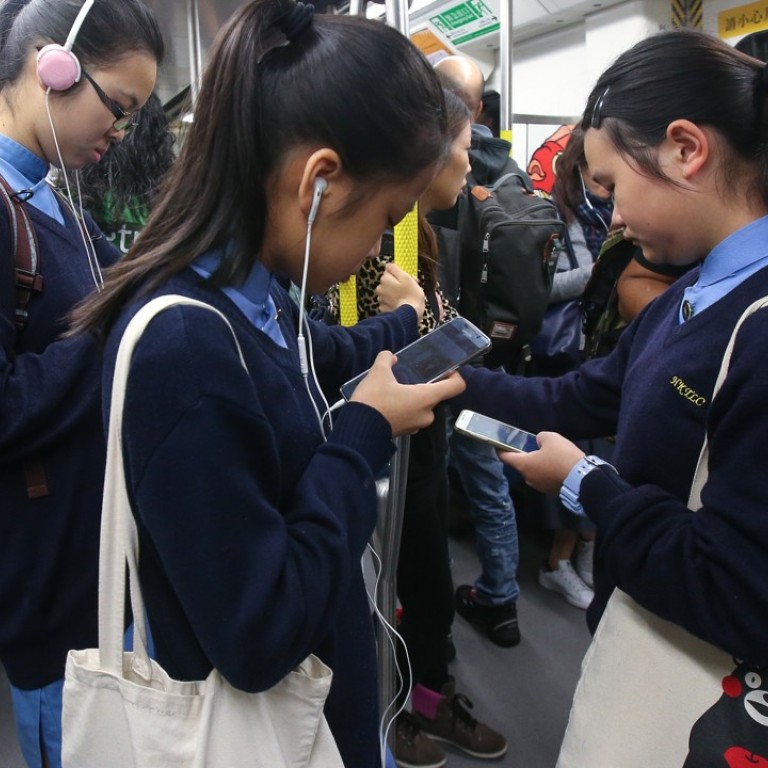Advertisement
Advertisement

Texting teens beware: you may miss out later in life
I am writing in response to the letter from Chelsea Luo, about how smartphone addiction can leave people deficient in social skills (“Why texting teens need to look up more”, May 9).
I agree that excessive use of electronic devices by children reduces face-to-face interaction and affects social skills. But this addiction may undermine language skills as well.
Teenagers nowadays use emoji to replicate facial expressions and prefer to send a message via a voice recording. If they do type text, they use abbreviations and slang, and don’t seem to care about using the wrong words.
Many young Hongkongers unable to control their smartphone addiction, new survey finds
Furthermore, constant use of smartphones and other devices may prevent teenagers from expanding their social network in the real world. Texting only the people they already know is not a healthy substitute for verbal communication and social outreach in everyday situations. That will see them grow up having a very small social circle. Such a restricted social life can adversely affect their future in the job world or in personal relationships. When they want to enter the workplace, they may not have the speaking and networking skills many jobs require.
Schools should hold more speaking events and debates, to encourage students to interact more and develop their language skills.
Kelly Cheng, Kwai Chung

Post
